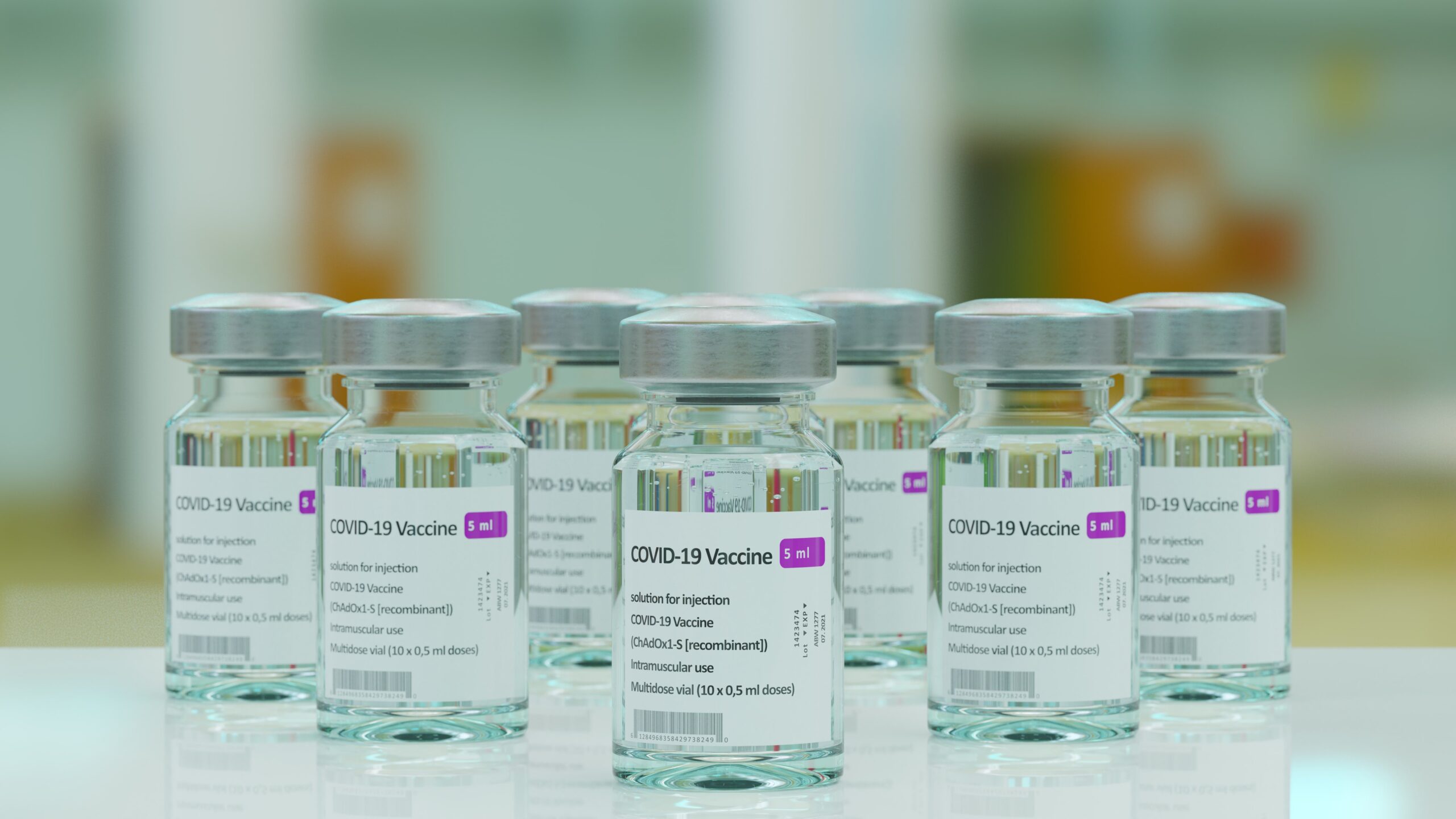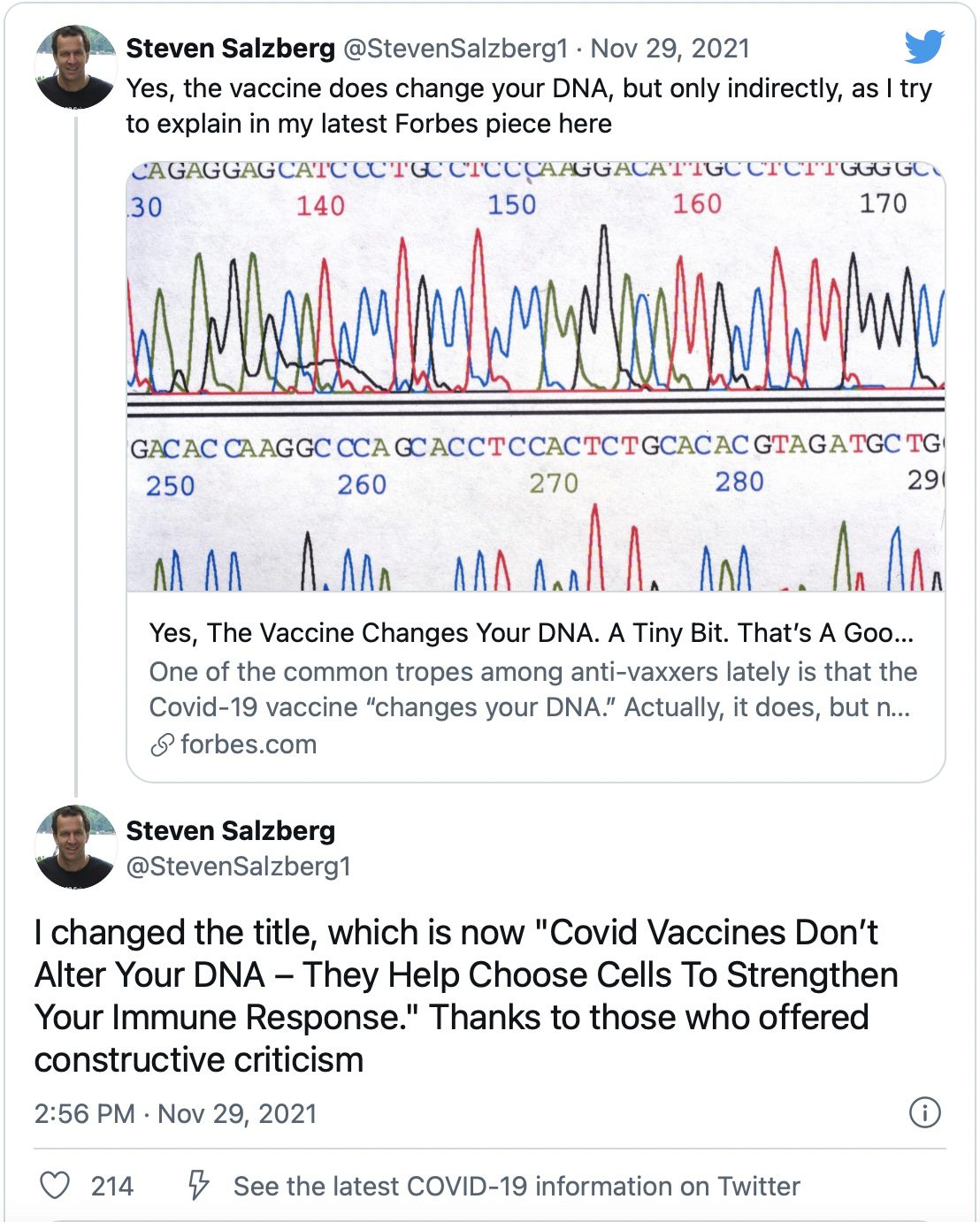In an article published by Forbes on Monday, the mainstream media admitted that COVID vaccines change your DNA but only indirectly and t...

In an article published by Forbes on Monday, the mainstream media admitted that COVID vaccines change your DNA but only indirectly and that is a good thing.
Forbes published an article from Steven Salzberg titled, “Yes, The Vaccine Changes Your DNA. A Tiny Bit. That’s A Good Thing.”

Forbes later retitled the article and admits that “Covid Vaccines Don’t Alter Your DNA – They Help Choose Cells To Strengthen Your Immune Response”. After being criticized by ‘vaccine cult’, the author changed the headline to emphasize that the vaccines “don’t alter your DNA” without changing any of the article’s content.

Blaze Media reported:
No editor’s note or other explanation for the change was given by Forbes. While the original headline summarized Salzberg’s argument, the new headline appears to slightly contradict what he wrote.
Salzberg wrote the article in response to what he called “one of the common tropes” about the vaccines popularized by those opposed to taking them: That the vaccines can change or interact with your DNA.
The CDC lists this claim as a common “myth” about vaccines.
Salzberg explained that technically the CDC “got it wrong” in its attempt to give a simple refutation of the DNA claim. He described how the body’s immune system responds to pathogens like the SARS-CoV-2 virus, selecting antibodies that can recognize the pathogen, bind to it, and destroy it.
“The way it does this is really rather extraordinary: many little pieces of your DNA are cut and pasted together, in millions of combinations, each making a different antibody. Eventually, one of these antibodies ‘recognizes’ the pathogen (by binding to it),” Salzberg wrote.
Continuing, he explained that successful antibodies are “remembered” by the immune system as special cells — called B-cells — that have slightly altered DNA.